Masked Molina finds hockey heaven
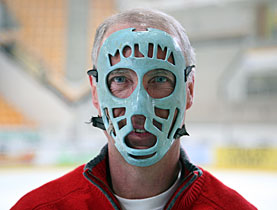
Alfio Molina spent more than a decade in front of the net of the Swiss national ice hockey team, guarding the squad through four world tournaments and two Olympics.
He began his national career aged 15 and ended it at 28. More than 20 years after his retirement, swissinfo talked to him about his rich career.
Molina met with swissinfo at Lugano’s Resega rink, where he began playing hockey as a child. Since then the facility has been upgraded, but his old club still calls it home. Photos of Molina and his jersey are proudly displayed.
Now 61, Molina is still mild-mannered man and has retained his athletic frame, recalling the image of an elegant goalie with cat-like agility.
At 15, Molina was selected as goalkeeper for the Swiss national junior team. There were no subdivisions by age at the time – boys and young men up to the age of 19 were all members of the same team.
At the same time he made his debut for the Lugano Hockey Club, then playing in the first division.
“It was all thanks to the coach, Elwyn Friedrich, who had faith in me and the courage to throw me in at the deep end,” he said modestly, skipping the part about how his spectacular saves were the basis of Lugano’s promotion to Series B at the end of that same season.
Molina would serve as Lugano’s official goalkeeper for the next 21 years. In his 22nd season, he decided to step down but promised the club he would still be available if necessary. So he carried on playing for another four years, alternating with the starting goalkeepers.
“I came and went, according to injuries,” he said. “For a non-professional like me, the last seasons were quite heavy going.”
A legend bows out
Despite having played at a top level, Molina saw hockey as an amateur activity. He was in no doubt about the priorities in his life: his family and his work as a draftsman.
Looking back, Molina says he had coveted the Swiss jersey even as a youngster. “From the time of my surprise appointment as goalie to the national junior team, it became a secret desire to don the Swiss shirt each year. I kept quiet about it – I didn’t tell a soul!”
After four seasons of selection for the Swiss junior team, he moved up to the reserves and then joined the Swiss national team proper.
“I was the only Italian-speaking player. I was on speaking terms with everyone, but I didn’t join any cliques. So I was popular with both the French Swiss and the German Swiss,” he said.
Matched with the greatest
Molina’s most treasured memory is when Switzerland played in Group A of the 1972 world tournament in Prague. “Perhaps that was the season in which I managed to give most.”
“An immense gap” had formed between the Swiss and the leading powers of world hockey. “The game went so fast, there was no time to think of anything. But those teams were a joy to play against.”
The Swiss turned out the second-best goalie of the tournament, just behind Jorma Valtonen of Finland, despite Switzerland’s decline and the fact that opposing teams had professionals in their ranks.
Molina also has a soft spot for the Olympics. He recalls the canteen as a meeting point for athletes. It was there in Sapporo in 1972 that he found himself in the queue with the Soviet team. Just in front of him was a 19-year-old Vladislav Tretjak, who would become a legendary goalie for the Soviets. “We had the pleasure of eye contact,” he said.
That pleasure was to be repeated on ice, two months later, at the World Cup in Prague. The goalie from Ticino and the man considered the greatest Soviet goalie of all time finally managed “to engage in a little dialogue, through an interpreter”. Molina does not reveal what they said to each other.
Room for improvement
What does Molina think of today’s goalkeepers in Switzerland? “The level has improved, one reason being that they receive specific training these days,” he said.
However, he believes there is room for improvement. “They look very static to me. They make less use of their hands than they used to.”
Then they tend to adopt a uniform style. Instead, “you need to know how to move. There are different situations, with different methods of catching. There have to be alternatives. It’s also important to make the most of individual skills”.
In his opinion, the most accomplished goalie in Switzerland in the 2008-09 season is Ari Sulander. The last line of the defence of the Zurich Lions “has managed to make a good mix of old and new methods, which he matches to the needs”.
The bad news however is that Sulander is Finnish. So we won’t be seeing him sporting a white cross on red in the 2009 world championships.
swissinfo, Sonia Fenazzi in Lugano
Alfio Molina was born in Lugano on April 20, 1948.
His father, who played in goal for Lugano Hockey Club, taught him to skate when he was very young, on Lake Muzzano just outside Lugano.
He started playing hockey at 8. He chose the role of goalkeeper.
At 15 he was selected for the Swiss junior side and became official goalkeeper for Lugano in the first division.
After four seasons with the national junior team he was selected for the national B team for a year. Then he was asked to join the Swiss national team itself. From then on, he was selected every year until 1976, when he decided to retire.
He remained Lugano’s first goalie without a break until 1982 when, after the team’s promotion to Series A, he finally asked to hang up his skates.
But the club managed to wring a promise from him to remain available in case the official goalies were injured.
He would play several more times until 1987, the year of Lugano’s second consecutive victory in the Swiss championship.
Alfio Molina played more than 500 matches for Lugano and 64 at national level.
He participated in the Olympic Winter Games in Sapporo in 1972 and in Innsbruck in 1976.
He took part in the world championships in Prague in 1972 (Group A), in France in 1974 (Group C), in Sapporo in 1975 (Group B) and in Switzerland in 1976.
Injury prevented him from playing in the 1973 World Cup in Graz.
In 1974 he was identified as best goalie in Group C in the World Cup.
He was the first torch-bearer in Switzerland for the 2006 Turin Olympics.
A trained draftsman, he worked for Lugano Town Council from graduation until his retirement at 60.
He is married with two children.

In compliance with the JTI standards
More: SWI swissinfo.ch certified by the Journalism Trust Initiative

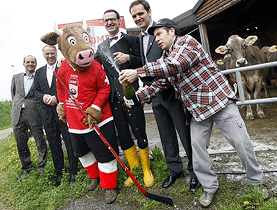
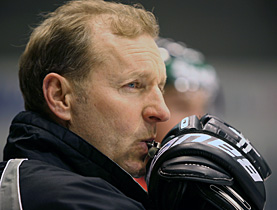
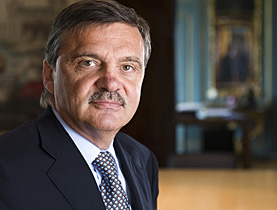
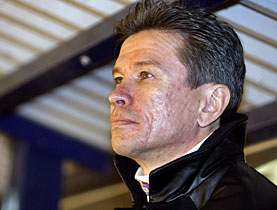
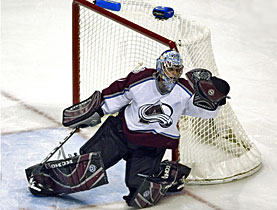
You can find an overview of ongoing debates with our journalists here . Please join us!
If you want to start a conversation about a topic raised in this article or want to report factual errors, email us at english@swissinfo.ch.